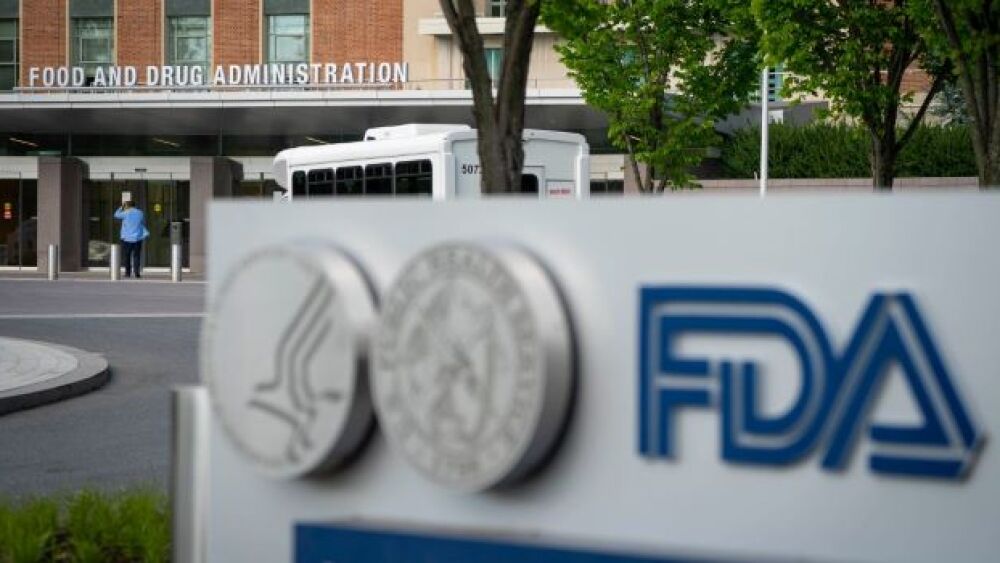The U.S. Food and Drug Administration granted Emergency Use Authorization (EUA) for the Pfizer-BioNTech vaccine for children ages 5 to 11.
Sarah Silbiger/Getty Images
As expected, the U.S. Food and Drug Administration granted Emergency Use Authorization (EUA) for the Pfizer-BioNTech vaccine for children ages 5 to 11. It is already authorized for people aged 12 and older. The vaccine will be available to children in this age group at one-third the dose of that given to adults. There are approximately 28 million children within this age group in the U.S.
It will now go to the U.S Centers for Disease Control and Prevention (CDC)’s vaccine advisory group. They are scheduled to hold a meeting on November 2 and 3.
In documents prepared for the advisory panel meeting earlier this week, the vaccine demonstrated 90.7% effectiveness for the children in this age group. Of the more than 2,200 children in the study, 1,500 received the active vaccine. In the entire group, only 19 were diagnosed with COVID-19. Of the three vaccinated children who came down with COVID-19, symptoms were mild and included cough, sore throat and headache. The remaining 16 were unvaccinated and had more symptoms, including 10 who presented with fevers. There were no severe cases or deaths in either group. Additionally, there were no cases of myocarditis, which has been seen primarily in males in the older adolescent groups. Myocarditis is rare and can also be caused by SARS-CoV-2 and other viral infections.
“As a mother and a physician, I know that parents, caregivers, school staff and children have been waiting for today’s authorization. Vaccinating younger children against COVID-19 will bring us closer to returning to a sense of normalcy,” said Janet Woodcock, acting FDA commissioner, in a statement. “Our comprehensive and rigorous evaluation of the data pertaining to the vaccine’s safety and effectiveness should help assure parents and guardians that this vaccine meets our high standards.”
If the CDC panel recommends the vaccine, it may be available to children ages 5 to 11 in early November. As with adults, the Pfizer-BioNTech vaccine comes in two doses taken 21 days apart.
Another difference from the original formulation is that this one can be stored in a refrigerator for up to 10 weeks.
Children in this age group have accounted for approximately 9% of all reported COVID-19 cases in the U.S. They make up approximately 40% of all pediatric COVID-19 cases, said Doran Fink, clinical deputy director of the division of vaccines and related products for the FDA. The case rate for this age group is “near the highest” of any age group.
For children in this age group and younger, a serious complication of COVID-19 is multisystem inflammatory syndrome (MIS-C). To date, more than 5,000 children have been diagnosed with this condition. MIS-C occurs when different organs become inflamed, including the heart, lungs, kidneys, brain, skin, eyes or gastrointestinal organs.
As of October 17, 2021, 691 U.S. COVID-19 deaths have been reported in children under the age of 18, with 146 in the 5 to 11 age group. The Biden administration has acquired enough doses to vaccinate all 28 million children 5 to 11 years of age and has the first 15 million ready to go the first week it is approved.
Among other questions, the CDC advisory panel has an option of recommending the vaccine in this age group to only children at high risk of the disease, because typically healthy children are not as likely to experience disease symptoms or serious illness. In children, the CDC has identified certain underlying medical conditions as placing them at high risk. These include obesity, chronic lung disease and neurological disorders. The CDC indicated that the most common underlying medical condition seen in children with COVID-19 was lung disease, primarily asthma.





